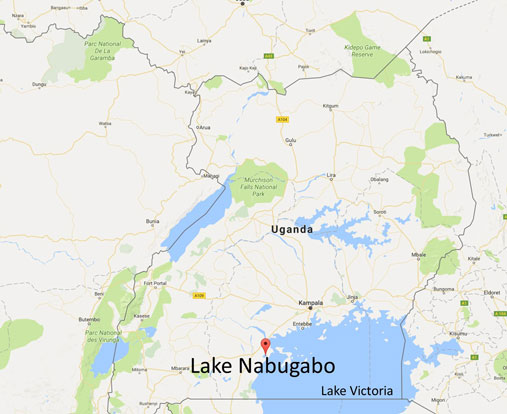Understanding the cross-scale nature of how natural resource trading links to local extraction patterns remains a topic of great relevance to stewardship and sustainable use of ecological systems. Microeconomic influences on a society’s pattern of small-scale natural resources utilization can exacerbate resource overuse, especially under increased population pressure. In many rural communities that are based on a limited diversity of resource industries, quantifying the response of extractors and traders to market and environmental fluctuations is critical to understanding management constraints. We examine the fishing practices of a small lake in Uganda, East Africa, from the dual perspectives of the traders and the fishers using a Bayesian Belief Network approach based on detailed interview surveys. Fishers in this small lake target Nile perch (Lates niloticus) and Nile tilapia (Oreochromis niloticus), two fish species of high commercial and food security significance in East Africa. We combined data on financial, social, and ecological systems to understand how aspects of trading quantitatively relate to fish extraction patterns in Lake Nabugabo Uganda.

Importantly, we find that the patron-client type relationships (fishers who are bound to operate under the control of a fish trader) generate incentives to extract specific fish, whereas “freelancer” independent fishers are able to create responsive and flexible extraction practices that match market and environmental fluctuations (figure 1).
The core finding of this research is that the trader-fisher relationship has an influence on the fishing practices. This impacts the management of the lake especially from within a social-ecological framework. The Beach Management Units were designed to operate as self-regulating authorities especially given the representation from different sectors of the fishing industry. The findings of this research highlight that the BMUs may not have the capacity to deliver sustainable fish extraction for the local community especially if the proportion of patron-client fishers increases. The research described here does not attempt to cover all aspects of the fishing industry at Lake Nabugabo but rather focus on an aspect of fisher and trader relationship. Additional scrutiny especially in the role of women, regional trade practices, and agricultural processes would assist the overall description of the social-ecological system and complement the previous work describing the fish ecology of the lake. However, despite the inherent complexity of the Lake Nabugabo community, exploring potential pathways for fishers to reach economic independence could help reduce market driven exploitation of a limited resource.
Management of fishing administered by local Beach Management Units will likely have a higher probability of success when in synchrony with trading relationships and ecological dynamics. We use this study in Uganda to reflect on methodological challenges and opportunities of combining multiple types of data sets for cross-scale analysis of social-ecological system dynamics.
Reference:
Stuart Kininmonth, S., Crona, B, Bodin, Ö, Vaccaro, I, Chapman, L.J., Chapman, C.A. (2017). Microeconomic relationships between and among fishers and traders influence the ability to respond to social-ecological changes in a small-scale fishery. Ecology andSociety 22(2):26. https://doi.org/10.5751/ES-08833-220226

Log in to comment
Not UiO or Feide account?
Create a WebID account to comment